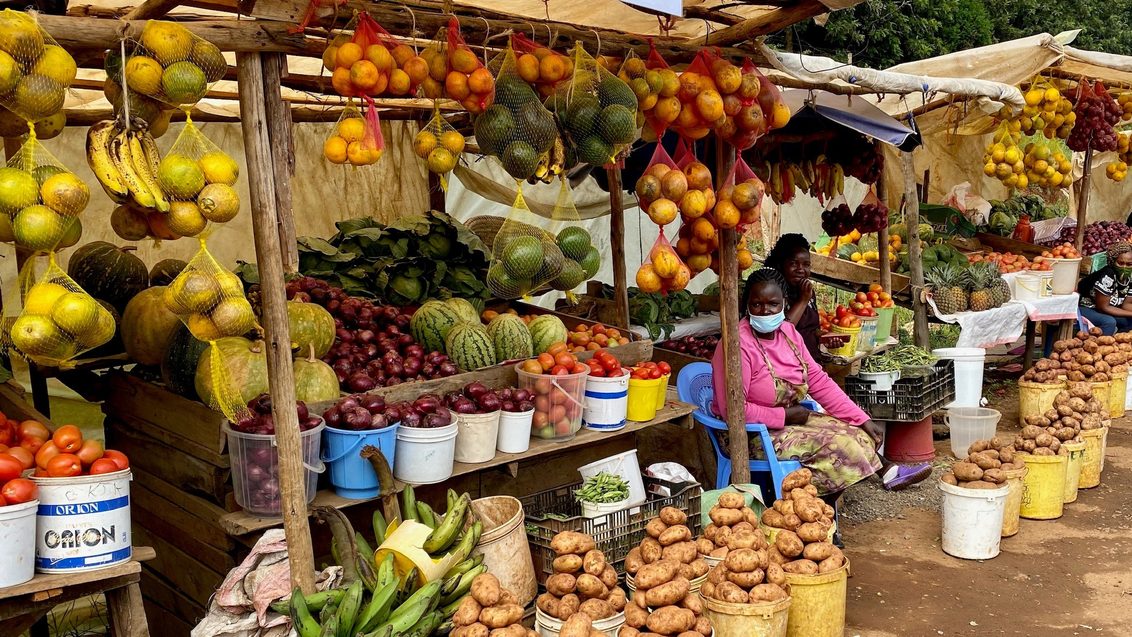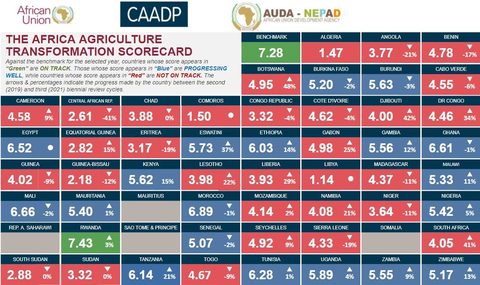The Malabo Ag Commitments – How is Africa doing?

By Alva Kretschmer & Yuan Zhou from our Policy team
In 2003, African Heads of States and governments signed the Maputo Declaration on Agriculture and Food Security in Africa. The Declaration documented several important decisions. Among the most prominent was the “commitment to the allocation of at least 10 percent of national budgetary resources to agriculture and rural development policy implementation”. In 2014, the Malabo Declaration on Accelerated Agricultural Growth and Transformation for Shared Prosperity and Improved Livelihoods reaffirmed this commitment. It also added numerous commitments on infrastructure, natural resources, land tenure, intra-African trade, poverty reduction, and nutrition, to be achieved by 2025.
To help turn intentions into facts, Heads of States agreed to a Biennial Review (BR). Every second year, each country would present its progress on the Malabo Declaration commitments and the measures to achieve them. The Comprehensive Africa Agriculture Development Programme (CAADP) published the third Biennial Review this March. 51 out of 55 countries reported their performance against 46 indicators. Despite all of them promising to make agriculture a priority, the BR shows widely varying degrees of progress. Only one-third of the countries are doing well. Rwanda is the sole country currently on track to achieving the Malabo goals. The continent as a whole failed to achieve any of the seven Malabo commitments.
Scores on Commitments 2 and 3, "Enhancing Investment Finance in Agriculture” and “Ending Hunger by 2025”, were particularly poor. Only Egypt, Eswatini, Seychelles, and Zambia are on track to achieve Commitment 2. Kenya stands alone in its achievement of Commitment 3. Metrics here include the use of fertilizer, access to agricultural inputs, and irrigation. Burundi, DR Congo, Ethiopia, and Mali spent at least ten percent of public funds on agriculture. Performance on Enhancing Resilience to Climate Variability looks better. Here, 15 countries appear on the track. This means that they are improving households’ resilience to climate and weather-related risks, as well as creating permanent investment in resilience-building. Rwanda, Tanzania, and Zimbabwe score highly on Recommitment to the Principles and Values of the CAADP process.
Reducing poverty through agricultural development is a major African Union goal. However, only Ghana and Morocco are still on track to achieve this. In the two previous BRs, more countries reported that they were meeting the target. Ghana alone has remained on track in all three Reviews.
The poor scores in this BR have many causes. Some of these were impossible to anticipate and very difficult to tackle. The Review period coincides largely with two years of COVID-19 disruptions to agricultural production and market systems. Smallholder farmers and SMEs were particularly affected. Fall armyworm infestation in 2018-20 and locust swarms since 2019 added to their hardships in dealing with extreme weather events. The need for rapid and sustainable mitigation and adaptation is greater than ever.
This BR is CAADP’s second last before the 2025 implementation deadline for the Malabo commitments. It comes shortly after the 2021 UN Summit that focused on transforming food systems. The Review is a wake-up call for all African countries. It reminds governments that transforming agriculture, boosting food systems, and making smallholder farming more profitable, productive and resilient doesn’t just ‘happen’. It requires commitments to be turned into action.
Calls for Action
The BR should stimulate urgent policy dialogue across African countries about how to resource and build capabilities for action. This is even more critical right now, given the food and fuel inflationary consequences of the Ukraine war. The key question is how will the BR translate into increased political and financial commitment and the whole government's actions to put African countries on track to achieve sustained inclusive agriculture-led growth?
We recommend that countries
- Step up their commitments and spend more and smarter on agriculture and food systems, including agri and food R&D attuned to the challenges of today and tomorrow (climate, nutrition, nature). National Agricultural Investment Plans remain a key vehicle for achieving the Malabo targets.
- Strengthen sustainable intensification on smallholder farms, for example through improving access to finance, quality inputs, and improved technologies. Smallholders are most exposed to risk and the undesirable consequences of countries’ lack of support and commitment.
- Help build a stronger seed sector, for example through a more enabling regulatory environment and regional harmonization that is accountable for access and adoption of improved varieties.
- Remove barriers and improve incentives for the adoption of climate-smart crop production.
- Boost intra-regional agricultural and food trade by taking advantage of the African Continental Free Trade Area.
- Encourage the private sector to coordinate for greater smallholder access to commercial value chains.
What can SFSA and our partners do?
The Syngenta Foundation is committed to creating a bright future for smallholder farming. Along with our partners, we will continue to invest in African agriculture. Based on our new strategy, we are eager to support African governments and actors across the food system to help smallholders and SMEs working with them, especially women and youth, to adopt climate-smarter agricultural technologies and practices and become more profitable, productive, and resilient.

